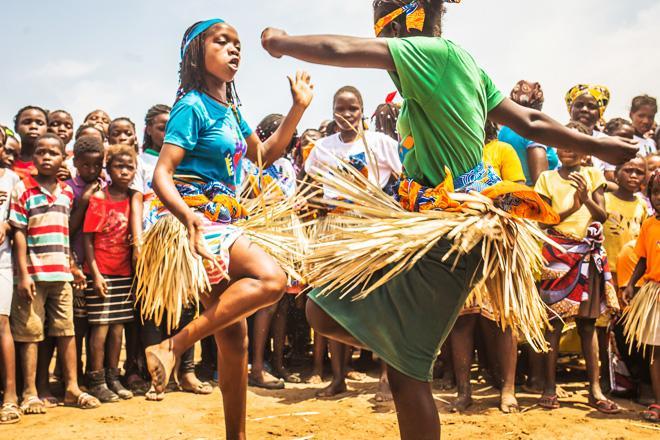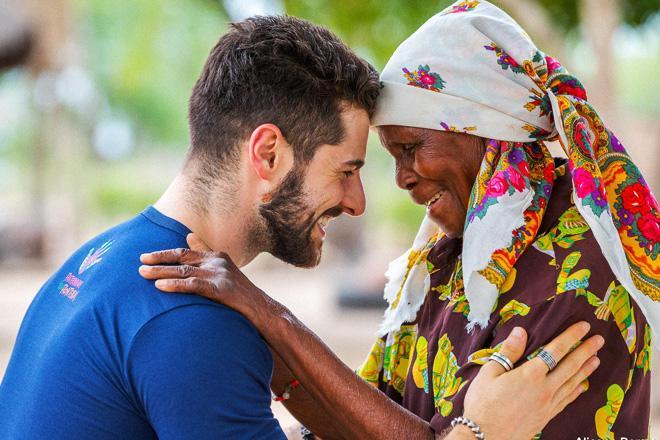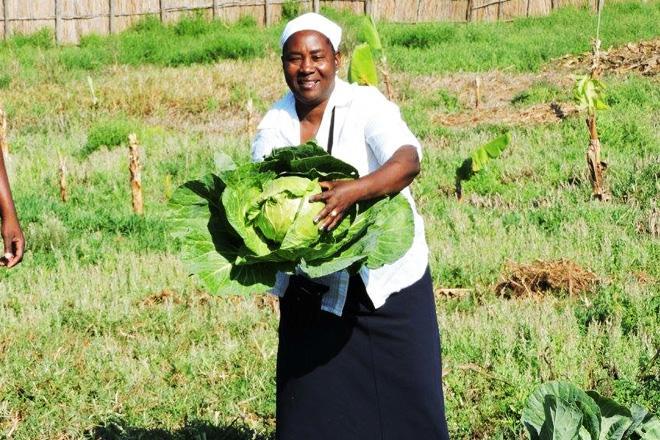The reality that got us there.
In Mozambican villages, one million people suffer from hunger and drink dirty water. Most are children orphaned by parents killed by HIV and malaria. They work for a plate of food and do not go to school.
People go up to 3 days without any food and walk miles to get 20 liters of non-potable water. There are regions where it has not rained regularly for 14 years. Amid so much need, we are coming together to welcome and change this reality.

Dance and music are strong expressions of African culture. In reception centers, we encourage art as a source of joy in life. Children and young people form groups, rehearse choreographies, sing, and perform, making everyone happy in moments of welcome and fellowship.
The first children who came to the project are now young and continue to be welcomed by the FWB.
The sponsors give them the opportunity to continue with their studies - in the villages, classes only go up to the 6th grade. They receive help with transportation to the city, tuition, and school supplies. Especiosa Marge is one of the first children to be sponsored, and today she is at the University.
In the shelters, young people also participate in work training courses through Dream without Borders, which professionalizes and trains those sheltered by the project. They learn to cultivate the land, how to make handicrafts with local materials, sewing, batik (fabric painting), and others. Thus, they gain self-esteem confidence in a promising future.

Many older adults in Mozambican villages live alone and have difficulty getting around. We support the construction of new houses for them and young people, welcomed by the FWB, bring food to grandparents who cannot walk.
We drill deep artesian wells, breaking through layers of rocks to provide clean water in abundance to the village community. Mothers with their children on their backs would walk miles to the edge of the dry river to dig wells to get a few liters of non-potable water to meet all the family's needs.

The arrival of water allowed the start of agroecological planting, aiming at self-sustainability of the project's food. At the Muzumuia reception center, the sustainable cultivation, in the pilot phase, already gives the first fruits, and the harvest goes to the children's plates. Young people, children of farmers, learn to produce by taking advantage of nature's resources, and the children participate in environmental education activities.
Fraternity Without Borders organizes caravans of sponsors of the cause, who pay their own expenses and go to Mozambique, in Africa, to learn about humanitarian work. They are doctors, dentists, educators, artists, liberal professionals - volunteers who get together to get to know the reality and help with the tasks of welcoming the families.

We maintain 24 reception centers in the villages in Mozambique located within an area covering 700 kilometers, from Barragem, near Maputo, to Chicualacuala, on the border with Zimbabwe.
In the Muzumuia village, we implemented the model structure for the reception centers. It has a kitchen, classrooms, bathrooms, a bakery, and rooms for professional training courses.
The goal is to bring the same structure to all reception centers. In some units, we still need kitchens, bathrooms, rooms, to offer adequate conditions to the workers and better welcome the children.